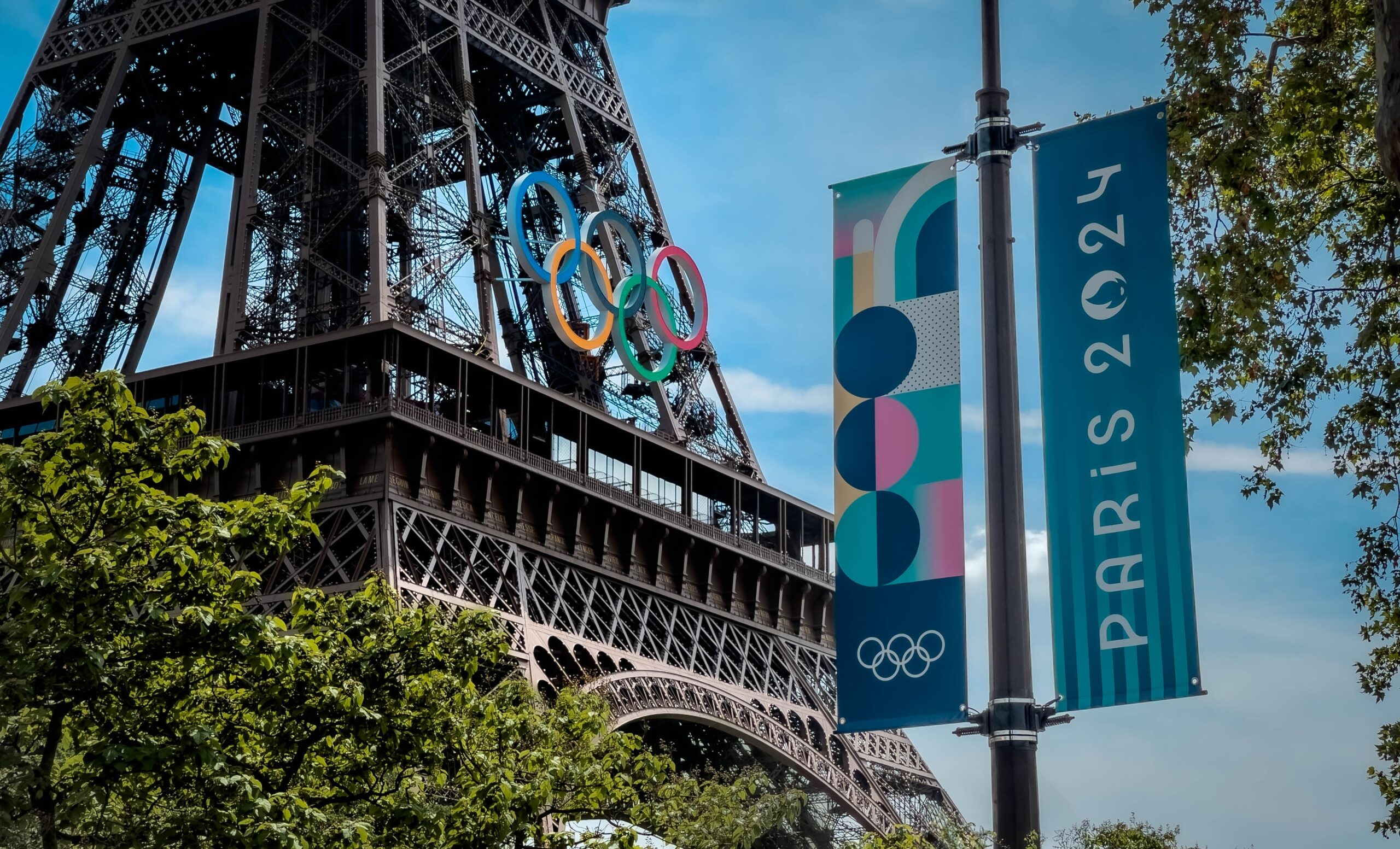By: Devashish Basnet
Since their unforgettable debut at the 2016 Rio Summer Olympic Games, the Refugee Olympic team, which represents millions of refugees and forcibly displaced people worldwide, keeps making history. This summer at the 2024 Paris Olympics, the team won its first-ever medal. Cindy Ngamba, a Cameroonian refugee who now lives in the UK, won the Olympic Bronze medal in the women’s middleweight boxing category. She is one of 37 athletes who competed on the international stage under the flag of the International Olympic Committee’s (IOC) Refugee team.
The 2024 team represented the largest Refugee Olympic team to date, and included refugee-athletes from Syria, Afghanistan, Iran, Sudan, Cuba, the Republic of Congo, South Sudan, Cameroon, Ethiopia, and Eritrea. A confluence of war, human rights violations, persecution, and violence led to the tragic realities of forced displacement that shaped the lives of each of these athletes who transformed their hardships into triumphs for the entire world to see.
But how was the idea of a team of talented athletes from a myriad of forcibly displaced backgrounds first conceived?
In 2016, the UNHCR documented over 65 million people around the world forcibly displaced from their homes. The global refugee crisis was at a peak and ahead of the 2016 Rio Games, the IOC announced the new Refugee Olympic Team as a part of its broader commitment to support athletes around the world that were affected by the compounding refugee crises of the era. The establishment of the team was supported by the National Olympic Committees of several nations, and was supported by the creation of a $2 million project development fund to invest in sport-related relief in affected areas in need of humanitarian relief. The announcement of the inaugural team of ‘Refugee Olympic Athletes’ was a culmination of decades of partnerships between the IOC and UN agencies after a 2014 UN General Assembly resolution officially recognized the importance of “sport as a means to promote education, health, development, and peace.” The inaugural team was comprised of ten athletes who were selected based on numerous criteria including their active UNHCR refugee status, sporting ability, and broader background of displacement.
The efforts of the IOC and the debut of the Refugee Olympic Team met two important needs for forcibly displaced people in the years leading up to 2016. First, there was a practical need for Olympic-level athletes who experienced displacement and did not have other means to compete in the Games to have an equal opportunity to participate despite the circumstances of their immigration status. Secondly, the participation of the team, and the powerful symbol of their entrance, marching under a white flag, with the official Olympic logo, draws attention to the plight of millions of forcibly displaced people who need global solidarity, material support, and urgent action.
Though the Refugee Olympic Team did not win any medals at the 2016 Rio Games, or the subsequent 2020 Tokyo Games, their growth in size, visibility, popularity, and support has inspired all those who tune in and most importantly, has demonstrated that refugees are more than just statistics—they are whole people with complex backgrounds teeming with tenacity, ambition, talent, and persistence. With a victory in their third appearance, the Refugee Olympic Team joins nations around the world in celebrating excellence in sport.
The Refugee Olympic Team and Ngamba’s triumph at the 2024 Games is connected to the longer lineage of resilience that refugees and forcibly displaced people are intimately familiar with. Since 2016, the UNHCR global estimate for forced displacement has grown exponentially, with over 100 million forcibly displaced people around the world as the Olympic torch was lit for this summer’s Olympic Games in Paris. Historic moments like this are opportunities to draw hope and strength from the stories of migrants who have so much to offer our communities and countries. Their success should reignite our collective commitment to working towards a reality where all capable athletes, regardless of immigration status, have a chance to vie for a medal at human history’s oldest sporting competition.
FILED UNDER: Olympics, refugees













